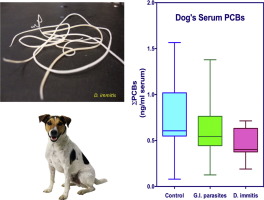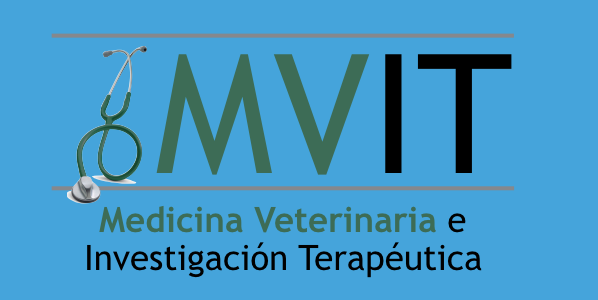
Influence of parasitism in dogs on their serum levels of persistent organochlorine compounds and polycyclic aromatic hydrocarbon
Henríquez-Hernández, L.A.ab, Carretón, E.c, Camacho, M.ab, Montoya-Alonso, J.A.c,Boada, L.D.ab,Valerón, P.F.ab,Cordón, Y.F.c,Almeida-González, M.ab,Zumbado, M.ab,Luzardo, O.P.ab![]()
a Toxicology Unit, Research Institute of Biomedical and Health Sciences (IUIBS), University of Las Palmas de Gran Canaria, Cabrera Felipe s/n, Las Palmas de Gran Canaria, Spain
b Spanish Biomedical Research Centre in Physiopathology of Obesity and Nutrition (CIBERObn), Paseo Blas Cabrera Felipe s/n, Las Palmas de Gran Canaria, Spain
c Internal Medicine Service, Faculty of Veterinary Medicine, Research Institute of Biomedical and Health Sciences (IUIBS), University of Las Palmas de Gran Canaria, Paseo Blas Cabrera Felipe s/n, Las Palmas de Gran Canaria, Spain
Abstract
Persistent organochlorine pollutants (POPs) are toxic chemicals, which accumulate in humans and animals, as only few species have the capability of eliminating them. However, some authors have pointed to the possibility that certain species of invertebrates (i.e. nematodes) could metabolize this type of compounds. As certain species of nematodes act as parasites of vertebrates, this research was designed to explore the influence of some of the most common parasites of the dogs in their serum levels of 56 common POPs. The study included three groups of dogs (n = 64), which were prospectively recruited in the island of Gran Canaria (Canary Islands, Spain): a) control animals, non-parasitized (serologically tested negative, n = 24); b) dogs tested positive for intestinal parasites and negative for other parasites (n = 24); and c) dogs tested positive for heartworm disease (Dirofilaria immitis) and negative for other parasites (n = 16). The presence of Dirofilaria immitis was strongly associated with lower serum levels of a wide range of pollutant in their hosts (PCB congeners 28, 52, 118, 138, 153, and 180; hexachlorobenzene, lindane, aldrin, dieldrin, anthracene and pyrene). We also found an inverse association between the hosts’ serum levels of PCBs and intestinal parasites. We did not find any association with DDT or its metabolites, but this might be explained by the recently suggested ability of dogs for the efficient metabolization of these compounds. According to the results of this study certain forms of parasitism would reduce the bioavailability of the major classes of POPs in dogs. However, further studies are needed to elucidate whether this phenomenon is due to a competence between parasites and hosts or could respond to a possible capability of parasitic nematodes for the metabolization of these POPs. © 2016 Elsevier B.V.
Author keywords
Dirofilaria immitis; Dogs; Organochlorine pesticides; Parasites; Polychlorinated biphenyls; Polycyclic aromatic hydrocarbons
Indexed keywords
Engineering controlled terms: Animals; Aromatic compounds; Aromatic hydrocarbons; Biochemistry; Body fluids; Chlorine compounds; Disease control; Hydrocarbons; Insecticides; Pollution; Polychlorinated biphenyls; Polycyclic aromatic hydrocarbons
Dirofilaria immitis; Dogs; Hexachlorobenzene; Intestinal parasites; Organochlorine pesticides; Parasites; Persistent organochlorine; Persistent organochlorine pollutants
Engineering main heading: Organic pollutants
Species Index: Animalia; Canis familiaris; Dirofilaria immitis; Invertebrata; Nematoda; Vertebrata



